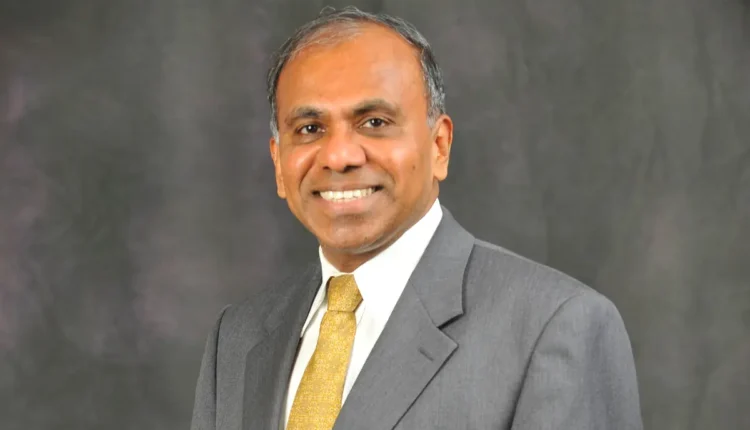In the vast realm of academia and scientific exploration, one name shines brightly – Subra Suresh. A trailblazer in the fields of engineering, materials science, and education, Subra Suresh’s journey is nothing short of inspirational.
From his early life in Mumbai, India, to his current role as Professor at Large at Brown University and Vannevar Bush Professor of Engineering Emeritus at MIT, Suresh has left an indelible mark on the global academic landscape.
Early Life and Education of Subra Suresh
Subra Suresh’s story begins in Mumbai, India, where he was born and later graduated from high school in Tamil Nadu at the young age of 15. His academic prowess led him to the prestigious Indian Institute of Technology Madras, where he earned his BTech degree with First Class with Distinction in May 1977.
Subra Suresh furthered his education with a Master’s degree in Mechanical Engineering from Iowa State University in 1979, and a ScD in Mechanical Engineering from MIT in 1981.
His journey of knowledge continued as a postdoctoral researcher at the University of California, Berkeley, and the Lawrence Berkeley National Laboratory from 1981 to 1983, setting the stage for a remarkable career.
Brown University: A Platform for Excellence
Joining Brown University in 1983 as an Assistant Professor of Engineering, Suresh swiftly climbed the ranks, becoming a Professor in July 1989. His accomplishments were recognized on a national scale when he received the NSF Presidential Young Investigator Award in 1985.
Suresh’s contributions extended beyond accolades; his 1991 book, “Fatigue of Materials,” published by Cambridge University Press, remains a seminal work, cited over 7,800 times.
Returning to Brown University in 2023 as Professor at Large, Suresh continues to inspire through public lectures and research collaborations.
Massachusetts Institute of Technology: Leadership and Innovation
In 1993, Suresh embarked on a new chapter at MIT, where he held the R.P. Simmons Professor of Materials Science and Engineering position.
Breaking barriers, he became MIT’s Dean of Engineering from 2007 to 2010, leaving an indelible mark as the first Asian-born dean of any MIT school.
Suresh’s leadership fostered new laboratories, innovative curricula, and international collaborations, including the establishment of the Singapore-MIT Alliance for Research and Technology (SMART) Center.
National Science Foundation: Shaping the Future of Science
Appointed by President Barack Obama in 2010, Suresh took the helm as the Director of the National Science Foundation (NSF). During his tenure until 2013, he spearheaded transformative initiatives, including the NSF Innovation Corps (I-Corps), a program with a global impact on translating scientific discoveries into commercial practice.
The I-Corps program, designed by Suresh, has catalyzed around 1,700 start-ups, raising over $4 billion in external funding since 2012.
Carnegie Mellon University: Fostering Innovation and Inclusion
In 2013, Suresh assumed the role of the 9th president of Carnegie Mellon University, where he championed diversity in science and technology. Under his leadership, CMU settled a significant patent infringement lawsuit and secured substantial donations, including $67 million from CMU alum David Tepper.
Suresh’s commitment to inclusivity in higher education was evident in his support for students affected by the immigration ban in 2017. In a letter, he shared his own immigrant journey and emphasized the nation’s potential to help everyone succeed, regardless of their origin.
Nanyang Technological University Singapore: A Visionary Turn
In 2018, Subra Suresh embraced a new challenge as the President of Nanyang Technological University (NTU) in Singapore. His forward-thinking approach led to the transformation of NTU into a “smart” campus, with sustainable buildings, robotics, and driverless electric buses. Suresh’s presidency witnessed record research funding, international recognition, and a commitment to sustainability.
Research Legacy and Honors
Subra Suresh’s research spans the mechanical properties of materials, biological cells, and molecules, with implications for human disease. His prolific publications, co-authorship of books, and numerous patents showcase his multidisciplinary contributions.
Honored with prestigious awards, including the National Medal of Science, Padma Shri, and the Franklin Institute’s Benjamin Franklin Medal, Suresh’s impact transcends borders. Elected to esteemed academies globally, he holds 20 honorary doctorate degrees and serves on the boards of renowned institutions like Hewlett-Packard and Singapore Exchange.
A Legacy of Innovation and Inclusivity
Subra Suresh’s journey exemplifies resilience, innovation, and a commitment to inclusivity in academia and science. His leadership roles at MIT, NSF, CMU, and NTU showcase a remarkable ability to forge new paths, establish international collaborations, and inspire the next generation of scientists.
In the words of President Biden during the award of the National Medal of Science in 2023, “For pioneering research, transformative education, and global collaboration, Subra Suresh has shown how science can unite nations and drive progress.”
Also Read: Sheetal Sheth: Redefining Success in Hollywood and Beyond

